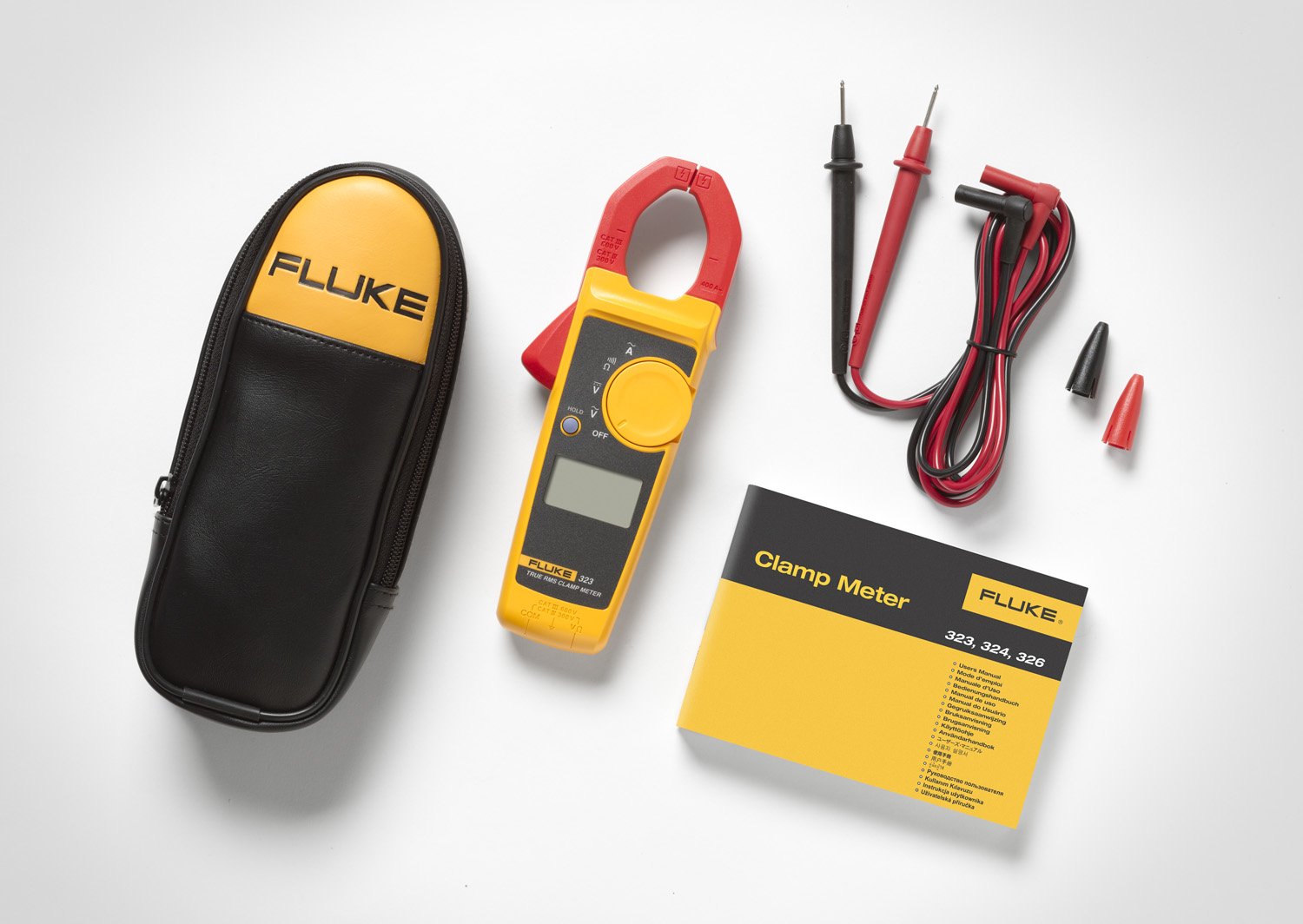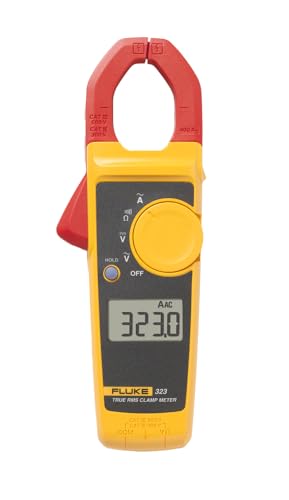Many HVAC technicians have a wide assortment of multi-meters, but the Fluke 323 is a great general-purpose meter for troubleshooting. This meter has been dropped from great heights and dragged through countless crawl spaces. We’ve even had one that was covered in spilled paint thinner for hours, and we thought it was a goner.
The next day the meter powered on and has never failed to work properly since. The is the first meter we bought for work in the field. And it’s one that still gets used today.

Of course, a multimeter is a vital item to have in your toolkit for almost any job. Being able to get accurate readings on the electrical aspects of a system helps you pinpoint problem areas. It helps isolate where a problem could be. Is the juice not getting where it needs to go? Is it a component that’s bad, or is the electricity that far? Is the wiring sufficient to handle the amperage?
These are all important functions. It helps make sure that the system serves its purpose in keeping people comfortable or providing refrigeration. More importantly, it also is essential to be sure the system is operating safely – preventing damage to the equipment, or even worse – fire or explosion.
Fluke 323 Clamp Meter

We may earn commission from purchases made from our links, at no additional cost to you
Features
The Fluke 323 True-RMS Clamp Meter measures amperage, voltage, and continuity. The amp meter is one of the handiest tools in an HVAC technician’s arsenal of troubleshooting instruments. It can indicate whether power to a component is on. It also helps show how well a motor or compressor is running before you can snap your finger twice.
This clamp Meter measures up to 400 amps of AC current, A/C or D/C voltage up to 600 volts, and resistance up to 4 kilohms. The resistance feature also includes an audible continuity indicator for checking ohms in those hard-to-reach spots that make it hard to see the display.The meter also has a CAT IV 300V/CAT III 600 V safety rating.
Packages and Accessories
If you are interested in a regular multimeter as well, you might want to check out Fluke’s combo pack that includes the 323 Clamp Meter along with the 117 multimeter.
There’s a couple products available right from the manufacturer that complement your selection of a Fluke 323. They offer their own meter wipes to help keep your screen clear. They come in packs of 6 or boxes of 50.
You can also buy electrical leads to use with the Clamp Meter. The TL223 pack includes 3 test leads and 3 alligator clips.
Warranty
Fluke covers this meter with a two-year warranty.
Pros
This is a quality-name brand meter at an affordable price – and they toss in a soft carrying case to boot.
Clamp meters are easy to hang on equipment, allowing both hands to be free during troubleshooting.
This tool is a True-RMS meter. True-RMS Meters are the industry standard because of their ability to read distorted waveforms caused by nonlinear loads such as variable speed motors.
A hold button to record the last reading taken and an audible indicator for continuity, make this meter easy to use in difficult situations where looking directly at the display may not be possible.
Cons
This meter is not equipped with a backlight for easy visibility in low light conditions. And we all know that we’re often in those situations.
Conclusion
Fluke-brand meters are widely used in the HVAC industry and are associated with durability. Its ergonomic design, versatile features, and affordable price make the Fluke 323 True-RMS Clamp Meter a great choice for an everyday/general use meter for HVAC troubleshooting. It’s definitely worth checking out and adding it to your toolkit.
Other Related Content
Here is some other content that might interest you:
Share to Pinterest



